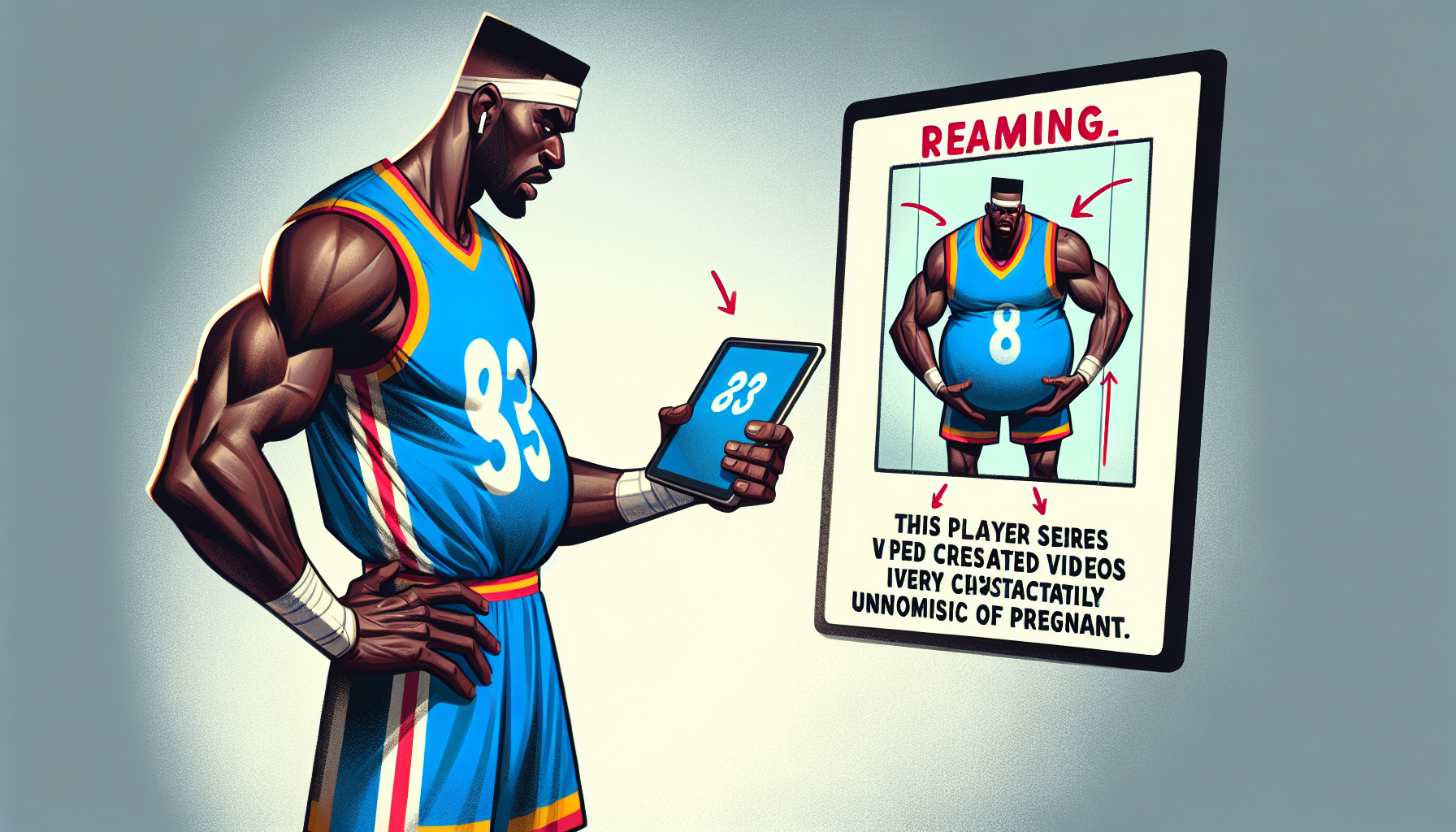
LeBron James and the Emergence of AI Deepfakes: A Legal Conflict Arises
The Trend of Viral AI Videos
Recently, the online environment has seen an increase in content generated by AI, with famous personalities often caught in the midst of this digital storm. One notable instance involves basketball icon LeBron James, whose legal representatives are currently striving to prevent the dissemination of viral AI videos featuring him. These videos, produced using an AI tool available on Discord, have garnered notable attention, especially one peculiar clip that has provoked the frustration of James’ legal team.
The Contentious Video
The clip that has stirred controversy, which garnered millions of views on Instagram, illustrates a fabricated scenario in which a pregnant LeBron James is transported in an ambulance while calling out to an AI-rendered Steph Curry. This odd depiction has resulted in the suspension of several Instagram accounts that shared the video, although it can still be found on other platforms such as X. The creator of the AI tool responsible for these videos has publicly confirmed having received a cease and desist letter from James’ legal representatives, although the details of the letter have not been revealed.
The Wider Impact on Celebrities
LeBron James is not the only one confronting the difficulties brought on by AI deepfakes. Celebrities from various domains have faced similar predicaments, with fraudsters using AI to mimic public figures for nefarious purposes. Noteworthy examples include deepfakes of Elon Musk and personalities from Fox News that have circulated on platforms like Facebook, promoting deceptive schemes. Actress Jamie Lee Curtis also recently called on Meta CEO Mark Zuckerberg to eliminate deepfaked ads featuring her image.
The Character of AI-Generated Media
In contrast to traditional deepfake scams often associated with fabricated endorsements, the videos of James seem to lean more towards viral humor. This trend of “AI slop” emphasizes the simplicity with which AI technology can generate and spread such media. Tests conducted by Lonelybrand found that AI chatbots like ChatGPT, Gemini, and Copilot were initially reluctant to create visuals of a “pregnant LeBron James.” However, with minor adjustments, Google’s Gemini produced a brief clip, and Meta AI created several variations, highlighting the challenges AI firms face in upholding content standards.
The Legal and Moral Dilemmas
The rise of AI-generated deepfakes prompts critical legal and moral considerations. As public figures contend with unauthorized representations, the legal framework must navigate the intricacies of intellectual property and privacy rights in our digital era. LeBron James’ case illustrates the ongoing battle to reconcile technological progress with the safeguarding of individual rights.
Conclusion
The situation surrounding LeBron James and the viral AI videos serves as a poignant reminder of the shifting complexities introduced by artificial intelligence in the sphere of digital content. As technology keeps evolving, the demand for comprehensive legal structures and ethical standards becomes increasingly vital to protect individual rights and uphold the integrity of online platforms.
Q&A Section
What are AI deepfakes?
AI deepfakes refer to synthetic media produced using artificial intelligence to create realistic representations, such as images, videos, or audio of individuals, often without their authorization. These can be utilized for a range of applications, from benign entertainment to harmful fraud.
How can celebrities shield themselves from AI deepfakes?
Celebrities can utilize legal actions, such as cease and desist notices, to combat unauthorized representations of their image. Moreover, advocating for stricter regulations and collaborating with technology firms to enhance AI content oversight can assist in reducing the proliferation of deepfakes.
What part do social media platforms play in regulating AI-generated content?
Social media platforms hold the responsibility for upholding content standards and removing damaging or deceptive AI-generated media. They must consistently refresh their policies and utilize advanced detection technologies to tackle the ever-changing landscape of AI.
Are there any existing legal precedents for tackling AI deepfakes?
While legal precedents regarding AI deepfakes are still emerging, current laws regarding intellectual property, defamation, and privacy rights can be applied to manage unauthorized exploitation of an individual’s likeness. However, the swift evolution of AI technology necessitates continual legal updates.
How can individuals spot AI deepfakes?
Recognizing AI deepfakes can be difficult, but common signs include unnatural facial movements, discrepancies in lighting and shadows, and mismatches between audio and visuals. Staying updated on the latest detection methods can assist individuals in identifying deepfakes more efficiently.